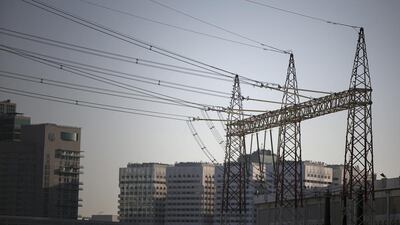No-one wants to pay more than they have to for anything but we have all been receiving a handout in the form of unrealistic energy prices.
The Government has been paying part of your bill, which not only creates an unfair dependency but it also makes for a wasteful society in a time where every fil counts.
The problem is that while the UAE, like other oil-dependent countries, benefited greatly from high oil prices when more money was coming in – the same is true for low oil prices. Oil prices go up and down, but this is the first time in two decades where the price has stayed down for an extended period of time – more than two years in this case.
When there is not as much money coming in as previous years, budgets need to be trimmed. If not, there is a greater economic fallout with further job losses and cuts in salary. Would you rather keep your job or have a cheaper power and water bill for a limited time?
Yes, UAE nationals will still receive a little help from the Government but many countries offer their nationals certain advantages, such as being a priority candidate for a job, nationalised health care or subsidised electricity and water. In Egypt, for example, power tariffs are determined based on the area in which you live.
However, it is important to note that Emiratis are relatively few in number. There are more than 1 million expatriates in Abu Dhabi alone while nationals in the emirate number slightly above 350,000, according to the Statistics Centre Abu Dhabi.
For those of us non-Emiratis, we will now be paying the actual price for power and water up to 20 kilowatt hours a day for those who live in a flat and 200 kWh if in a villa. After that, a larger rate is charged.
Some social media users brought up a valid point about having little to no choice in rented accommodation regarding more energy efficient appliances and even solar panels. I, too, share that predicament. However, when I looked at my ADDC bills for the past two years, I never surpassed the amount allotted despite having little choice in building materials.
I turn off lights in unoccupied rooms, keep my air conditioner (mostly) at 24°C and I do not keep the water running when brushing my teeth. These are simple measures that we can all take in order to keep our bills down, not to mention the recent SMS reminders from ADDC about such.
What I was most interested in were the discussions about installing solar panels. There are schools and other government buildings in Abu Dhabi that have these systems. Dubai has a far wider reach with its Shams Dubai initiative, which aims to have solar panels on every roof in the emirate by 2030. So far 222 buildings in Dubai have solar panels, including Dubai World Central Al Maktoum International Airport and Premier Composite Technologies in Dubai Investment Park.
Most of the projects are for commercial buildings because the payback period for residential solar is still uneconomical as the price of power is low.
And electricity was more expensive in Dubai than Abu Dhabi. Even with the latest tariff changes in Abu Dhabi, it will take upwards of 10 years to receive a return on your investment in a solar home system, according to a Dubai-based solar installer. Why would a homeowner add solar panels to their property if it would take 10 years to even see the impact?
And if you are renting, the likelihood that you would ever see the benefit of such a system is extremely low.
Sure it is great for the environment, but how many of you choose an environmentally-friendly alternative if it costs more money? If so, there would not be a conversation about paying the actual cost of water and electricity.
The fact remains that many more measures need to happen before this becomes a viable option for homes in Abu Dhabi.
lgraves@thenational.ae

